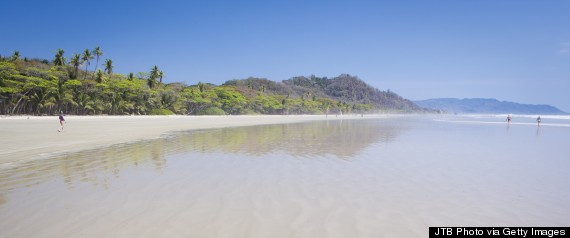SPECIAL FROM Grandparents.com
Nearly a century ago, the average lifespan across the world was a mere 31 years old. Today, people are living longer, healthier lives, and in some countries, like Japan, Iceland, and Italy, men and women alike are living past 80 years old.
Advancements in health-care, the overall decline of tobacco use and the rise of safer living conditions have all helped us collectively live longer. However, there are some cities and towns where becoming a centenarian isn’t an anomaly – it’s a cultural rite of passage.
In these very special places, often referred to as Blue Zones, people enjoy nearly two more decades on earth than the rest of us. That’s an extra 10 million minutes, 20 more chances to blow out birthday candles and 7,305 more opportunities watch the sunrise and sunset.
Thanks to research by Dan Buettner and National Geographic, we know of several places in the world where people are living longer, healthier lives. What’s more, we know why these communities are thriving -– and it has less to do with genes and more to do with lifestyle, which is great news. That means that almost anyone can incorporate some of these healthful habits into their daily life to help increase longevity.
Okinawa, Japan: Eat more vegetables

This southern Japanese island is home to what’s purportedly the largest population of centenarians in the world with the longest-lived women and the longest disability-free life expectancy in the world, according to National Geographic.
What’s even more fascinating is that Okinawans actually age more slowly than the rest of us due to higher level of sex hormones, according to the Okinawa Centenarian Study. For example, a 70-year-old man may actually have the bones and hormones of a spry 50 year old.
Okinawans rely on a low-calorie plant-based diet and consume more tofu and soy compared to any other population, which researchers have found contributes to a low cancer rate and fewer menopause-related complications. However, the most interesting dietary habit the Okinawans practice is hara hachi bu, a Confucian axiom that encourages people to eat only until they are 80 percent full. Research by the University of Wisconsin-Madison has shown that practicing a reduced calorie diet actually promotes longevity and reduces the prevalence of age-related disease, like diabetes, cardiovascular disease and cancer.
Loma Linda, Californa: Find faith

The Seventh-day Adventists in the Southern California town of Loma Linda don’t smoke, drink alcohol or consume caffeine. The trade off for these vices is enjoying a long life – eight to ten years longer than the average American, that is.
Like the people of Okinawa, some (but not all) Seventh-day Adventists of Loma Linda consume a mostly vegetarian diet. Yet all members of this community experience a longer than average lifespan. Why? Researchers believe they have their religion and faith to thank for those extra years.
With a 24-hour mandatory Sabbath once a week, people have a chance to take a break from the stress of daily life, which not only gives people a moment to take a collective breath but also allows them to strengthen ties within their church. Researchers believe this spiritual connection to their religion and community creates an impact in churchgoers’ physical health. In fact, people who go to church regularly tend to live longer and have significantly lower levels of stress hormones, according to a study by the University of Pittsburgh Medical Center.
Ikaria, Greece: Be well-rounded

Dubbed the “island where people forget to die,” Ikaria is an indisputable fountain of youth and home to centenarians who enjoy long lives without fear of dementia and chronic age-related diseases. Their Mediterranean-mountain lifestyle has created an almost perfect ecosystem that allows Ikarians to live well into their 90s.
From the food they sow and eat – mostly fruits, vegetables, beans and olive oil – to the company they keep – they are often up until the wee hours of the morning laughing and playing dominoes, almost every facet of the Ikarians’ day improves their longevity.
But it’s also what they don’t do that contributes to their overall health. Although they travel through hills and valleys to maintain their busy social lives, Ikarians also take time to nap each day, which helps reduce their risk of heart disease by 35 percent. Like the Okinawans, Ikarians also practice calorie restriction and even fast for nearly half the year thanks to their Greek Orthodox religion.
Nicoya, Costa Rica: Have purpose (and hard water)

This 80-mile peninsula off the coast of Costa Rica is a veritable hot spot for longevity. Not only do Nicoyans live longer than their fellow Costa Ricans, but they’re also healthier and less-stressed overall, due in part to plan de vida -– having a sense of purpose in life through strong community and familial ties. Multigenerational families are common in Nicoya, which helps to give centenarians a sense of purpose and belonging, according to National Geographic. In fact, having direction and leading a purposeful life can actually help you live longer, according to research published in the journal Psychological Science.
Nicoyans also have a reduced risk for cardiovascular disease, are leaner, taller and suffer fewer disabilities than other Costa Ricans, which may be due in part to eating fewer calories at night and drinking hard water –- Nicoyan water has the highest concentration of calcium in Costa Rica.
Like the people of Okinawa, Nicoyans also age slower than the rest of the population due higher levels of the sex hormone DHEA.
Read more from Grandparents.com:
6 wise lessons on aging — from animals
New Alzheimer’s detection methods are on the horizon
4 real problems you can fix with your aging body
